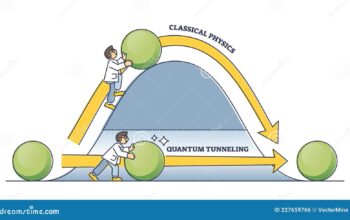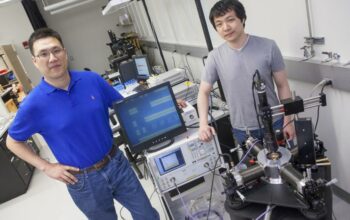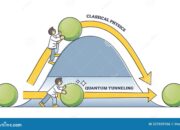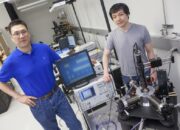Understanding Quantum Computing
Quantum computing represents a groundbreaking paradigm in computational technology, distinguished by its reliance on quantum mechanical principles. Unlike classical computing, which operates through binary systems, quantum computing leverages quantum bits, or qubits. These qubits can exist in multiple states simultaneously, thanks to phenomena such as superposition and entanglement. This unique capability allows quantum computers to process vast amounts of information concurrently, promising unprecedented computational power and efficiency.
Principles of Quantum Mechanics in Computing
At its core, quantum computing is anchored in the foundational principles of quantum mechanics. Superposition enables a qubit to represent both 0 and 1 at the same time, contrasting starkly with traditional bits which can only embody one state at any given instance. Entanglement, another pivotal phenomenon, leads to qubits becoming interdependent; a change in one qubit’s state instantaneously influences its entangled counterpart, regardless of the distance separating them. These principles allow quantum computers to perform complex calculations at speeds unattainable by their classical counterparts.
Types of Quantum Computers
Quantum computers can generally be categorized into three primary types: gate-based quantum computers, quantum annealers, and topological quantum computers. Each type embodies distinct algorithms and applications tailored to specific problems.
- Gate-based Quantum Computers: This type utilizes quantum gates to manipulate qubits in a controlled manner. Quantum algorithms such as Shor’s and Grover’s algorithm are implemented within this architecture, making it suitable for complex tasks like factoring large integers and searching unsorted databases.
- Quantum Annealers: These systems are specifically designed for solving optimization problems. By exploiting the principle of quantum tunneling, they examine multiple configurations of a problem simultaneously, facilitating the identification of global minima. This technology is particularly valuable in logistics, finance, and various fields requiring optimization.
- Topological Quantum Computers: Still in the theoretical domain, these computers aim to utilize anyons, exotic particles that exist only in two dimensions. The significant advantage lies in their resilience to decoherence, promising greater operational stability and error resistance.
Applications of Quantum Computing
The potential applications of quantum computing span a diversified array of fields, highlighting its transformative effects on various sectors.
- Cryptography: Quantum computing threatens to upend traditional encryption methods. Algorithms like Shor’s have the potential to break widely used cryptographic systems, prompting the adaptation of new quantum-resistant encryption techniques.
- Pharmaceuticals: The complex nature of molecular interactions can be accurately modeled using quantum computers, expediting drug discovery and reducing the time and financial investment associated with developing new medications.
- Artificial Intelligence: Quantum computing can enhance algorithms used in machine learning, potentially leading to significant advancements in data processing capabilities and the creation of more sophisticated AI systems.
- Logistics and Supply Chain: By utilizing quantum annealing to resolve optimization puzzles, companies can significantly improve efficiency in routes, inventory management, and production schedules.
The Challenges ahead
Despite its promising prospects, the field of quantum computing is not devoid of challenges. Chief among these is the issue of qubit coherence, wherein qubits are highly susceptible to environmental disturbances, causing computations to fail. Moreover, the development of quantum error correction methods remains critical for realizing fault-tolerant quantum systems.
Additionally, the existing talent gap poses a significant hurdle. The intricacies of quantum theory and the corresponding technical skills required to develop and maintain quantum hardware and software necessitate a concerted effort in education and training.
The Future Scope of Quantum Computing
The scope of quantum computing’s future is monumental, with ongoing research and development promising to unlock capabilities previously deemed unattainable. Industries have begun to recognize and invest in quantum technology, with tech giants and academic institutions racing to achieve quantum advantage—a point at which quantum computers can outperform classical systems in practical applications.
As commercial quantum systems become available, sectors such as finance, supply chain management, and personalized medicine are beginning to harness this newfound power. For instance, financial institutions could predict market trends with unparalleled accuracy, while personalized medicine could harness quantum’s enabling speed to tailor individual treatment plans based on genetic profiles.
Conclusion
Quantum computing represents a formidable leap into the future of technology, promising to revolutionize numerous fields through enhanced computational abilities. As research progresses and technology matures, the integration of quantum computing into everyday applications seems not only probable but inevitable. The dialogue surrounding its ethical implications, security ramifications, and educational requirements will be paramount as society navigates this new frontier. Thus, the trajectory of quantum computing is not merely about technological advancement; it invokes a transformative vision for the very fabric of computational science.












